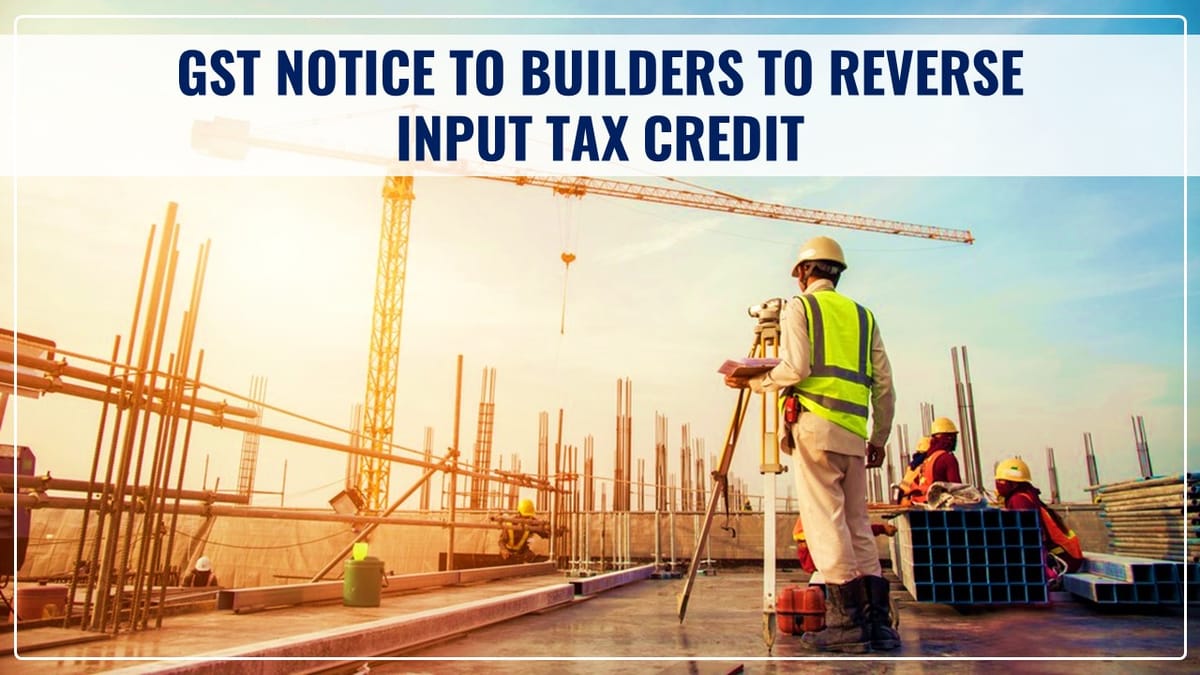Reetu | Feb 16, 2024 |

GST Scrutiny: Builders getting GST Notices to Reverse Input Tax Credit amid GST Scrutiny compliances
In a significant move, the Goods and Services Tax (GST) department has taken action against a number of builders, issuing notices to reverse the Input Tax Credit (ITC) claimed for the financial years 2017-18 and 2018-19.
The notices explicitly target ITC claimed on unsold apartments while receiving Building Use (BU) permission, instructing builders to reverse the credit for units sold after obtaining BU permission due to GST non-payment in these transactions. As a result, developers are recommended not to claim ITC for such apartments.
According to a knowledgeable source, numerous developers are under investigation for reportedly claiming excessive ITC during the 2018-19 financial year.
Notably, as of March 31, 2019, only ongoing projects had the option of GST rates of 8% or 12% (with ITC). Projects started after April 1, 2019, must adhere to GST rates of 1% or 5% (without ITC). However, GST does not apply to unit sales made after obtaining BU permission.
The GST department issued notices after identifying instances when developers claimed full ITC while they were eligible for lower rates. Builders who receive such notices should reverse the ITC, as well as pay the applicable interest and penalties.
The Department of GST issued notices after detecting instances in which developers claimed full ITC while they were eligible for lower rates. Builders who receive such notices are advised to reverse ITC, as well as pay interest and penalties as required by law.
A lack of awareness of ITC rules among developers has been noted as a contributing factor to these differences.
Since April 1, 2019, GST has been set at 1% for affordable housing projects that meet specific conditions, whereas non-affordable housing projects are subject to a 5% GST rate. To qualify for concessional rates, at least 80% of inputs and input services must be purchased from registered suppliers.
Shortfalls in this manner necessitate developers to pay taxes through the reverse charge method.
Furthermore, cement purchases must be strictly limited to registered providers. Procuring cement from unregistered suppliers may subject developers to a 28% tax under the reverse charge method, with payment due in the month of cement receipt.
As the GST department strengthens its scrutiny of builders, the industry is expected to adopt corrective measures to ensure compliance with tax regulation, reducing the risk of penalties and legal implications.
In case of any Doubt regarding Membership you can mail us at [email protected]
Join Studycafe's WhatsApp Group or Telegram Channel for Latest Updates on Government Job, Sarkari Naukri, Private Jobs, Income Tax, GST, Companies Act, Judgements and CA, CS, ICWA, and MUCH MORE!"